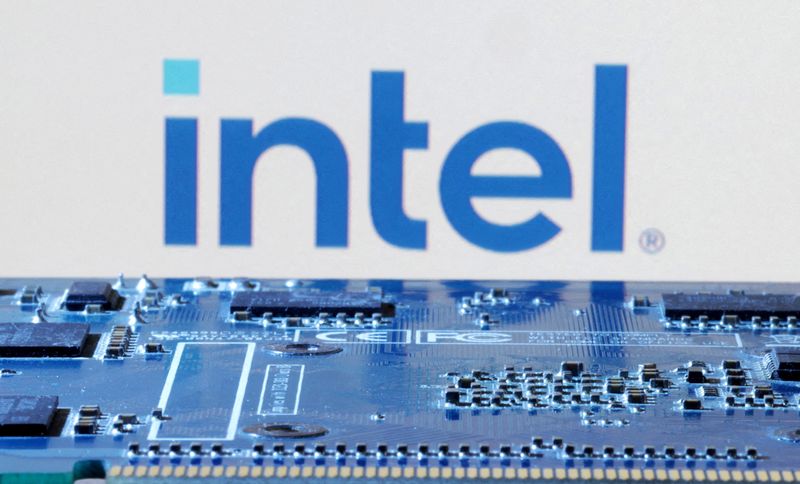Silicon Valley Secrets: Intel's CEO and His Controversial Chinese Investment Web
Companies
2025-04-10 10:02:35Content

In a surprising twist that has raised eyebrows across the tech industry, Lip-Bu Tan—the newly appointed leader of Intel, America's semiconductor giant—has a complex web of investments spanning hundreds of Chinese technology companies, including several with direct connections to China's military.
A comprehensive investigation by Reuters reveals that Tan, a veteran Silicon Valley investor with deep roots in Chinese tech, has built an extensive investment portfolio that goes far beyond typical corporate boundaries. The review uncovered that Tan controls over 40 Chinese companies and funds, while simultaneously holding minority stakes in more than 600 additional enterprises through his investment firms.
His recent selection as CEO of Intel, a critical manufacturer of advanced chips for the U.S. Department of Defense, has sparked intense scrutiny among investors and tech analysts. Questions are mounting about the potential conflicts of interest and national security implications stemming from his extensive Chinese business connections.
Tan's appointment represents a complex intersection of global technology, investment strategies, and geopolitical tensions, highlighting the intricate relationships that define modern international tech ecosystems. His background underscores the increasingly blurred lines between Silicon Valley innovation and global technological competition.
Silicon Valley's Global Tech Crossroads: Navigating Investments and National Security Tensions
In the intricate landscape of global technology and geopolitical strategy, the intersection of private investment and national security has never been more complex. The recent appointment of a prominent Silicon Valley investor to a critical leadership role in a major semiconductor company has sparked intense scrutiny and raised profound questions about the delicate balance between international business relationships and strategic national interests.Unraveling the Intricate Web of Global Tech Investments
The Investor's Expansive Portfolio
Lip-Bu Tan represents a quintessential archetype of modern global technology investment, embodying the complex interconnections between American and Chinese technological ecosystems. His investment portfolio is a testament to the increasingly blurred lines between private enterprise and geopolitical strategy. With control over more than 40 Chinese corporate entities and substantial minority stakes in over 600 companies, Tan's financial footprint extends far beyond traditional investment paradigms. The breadth and depth of his investment network reveal a sophisticated approach to technological innovation that transcends traditional geographical boundaries. Each investment represents not just a financial transaction, but a strategic connection between technological ecosystems that are simultaneously competitive and interdependent.Strategic Implications for National Security
The convergence of Tan's extensive Chinese technology investments with his leadership role at Intel, a critical supplier for the United States Department of Defense, presents a nuanced and potentially controversial scenario. His connections to at least eight organizations with documented links to the People's Liberation Army have triggered significant concern among investors and national security experts. This situation illuminates the increasingly complex landscape of global technology investment, where personal financial interests intersect with broader geopolitical considerations. The potential for conflicts of interest becomes particularly pronounced when key technological infrastructure and national defense capabilities are involved.Technological Diplomacy and Investment Dynamics
Tan's career trajectory represents a microcosm of the broader technological diplomacy emerging in the 21st century. His investments demonstrate a sophisticated understanding of how technological innovation transcends traditional political boundaries, creating networks of collaboration and competition simultaneously. The intricate web of relationships between Silicon Valley investors, Chinese technology firms, and strategic national infrastructure highlights the evolving nature of global technological development. Each investment becomes a potential bridge or potential point of tension in the complex geopolitical landscape.Regulatory and Ethical Considerations
The case raises critical questions about the existing regulatory frameworks governing technology investments and leadership appointments in strategically sensitive industries. How can nations balance the need for global technological collaboration with essential national security considerations? Regulatory bodies and corporate governance mechanisms are increasingly challenged to develop sophisticated approaches that can effectively navigate these nuanced scenarios. The traditional binary distinctions between domestic and international investments are becoming increasingly obsolete in a globally interconnected technological ecosystem.Future Implications and Technological Evolution
As technology continues to evolve at an unprecedented pace, the role of global investors like Tan becomes increasingly significant. Their ability to identify and nurture technological innovations across different geopolitical contexts will be crucial in shaping the future of global technological development. The ongoing dialogue surrounding such investments reflects a broader conversation about the nature of technological innovation, national interests, and the complex web of global economic relationships that define our contemporary world.RELATED NEWS
Companies

Energy Sector Showdown: Can Oil Giants Survive Trump's Tariff Tsunami?
2025-03-02 21:50:23
Companies

Data Integration Revolution: Airbyte Unleashes Powerful New Connectors to Supercharge Business Insights
2025-03-20 16:00:00






